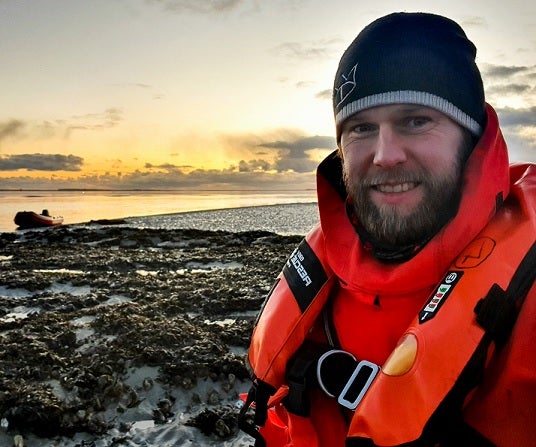“I’ve been interested in all forms of life for an extremely long time. Biomedical Sciences, where the focus is entirely on humans, is only a small part of that. When I heard from my fellow Biology students what they were learning and experiencing in the field, I realised that it would be a better option for me. So, I decided to finish my Bachelor's degree first and then gain entry to the Master’s programme in Ecology through a pre-Master's programme. Because Ecology is really about the interactions between all kinds of species and how they interact with their environment, it provides a much more complete picture of how the world works.”
“During my Master, I did two internships. The first was a research project at the VU on the interaction between soil fungi (mycorrhiza) and plants. The mycorrhiza can supply nutrients to plants at the roots and in return receive sugars from the plant. However, not every fungus trades fairly. In my research, I showed that the plant can distinguish between honest and dishonest fungi. For the second internship, I went to Curaçao to study sponges. Some species were found in coves with mangroves, but not on the reefs, and vice versa—even though there was a direct connection between the two ecosystems! We transplanted sponges between the two systems. Then, I looked at the bacterial communities in the sponges and it turned out that the community was more flexible in the mangrove sponges.”
“After my Master's programme I did additional research, for which I received a grant. This allowed me to do five months of research in Kenya on the effect of mega herbivores on subterranean mycorrhizal fungi. After that, I started working as a PhD candidate at the Department of Ecological Science, also at VU Amsterdam. During my PhD, I studied the effects of climate change, specifically the effects of extremes, such as heat waves, on soil life. For this, I combined fieldwork on the Frisian island of Schiermonnikoog with lab and modelling studies. And together with a team of engineers, I developed an experimental set-up (www.climecs.com) to make lab experiments on the effects of climate change more realistic.”
“I now work at the University of Groningen and am a guest researcher at the Royal Netherlands Institute for Sea Research (NIOZ). I work there as a postdoc and scientific coordinator of the Wadden Mosaic project (www.waddenmozaiek.nl), where we study biodiversity of the subtidal Wadden Sea.”
“Tips for future Ecology students? Most importantly, find something that you really enjoy doing, so that you stay motivated to continue doing it. Also, look carefully at the opportunities that present themselves. And when that opportunity seems difficult, don’t refuse it straightaway, but rather see it as a nice challenge.”
Oscar Franken, postdoc and scientific coordinator
After completing a Bachelor's programme in Biomedical Sciences, Oscar Franken received his Master's degree in Ecology and Evolution (then called Ecology) from VU Amsterdam in 2011. Oscar works as a postdoc and scientific coordinator at the University of Groningen and the NIOZ and is the lead developer of CLIMECS.
